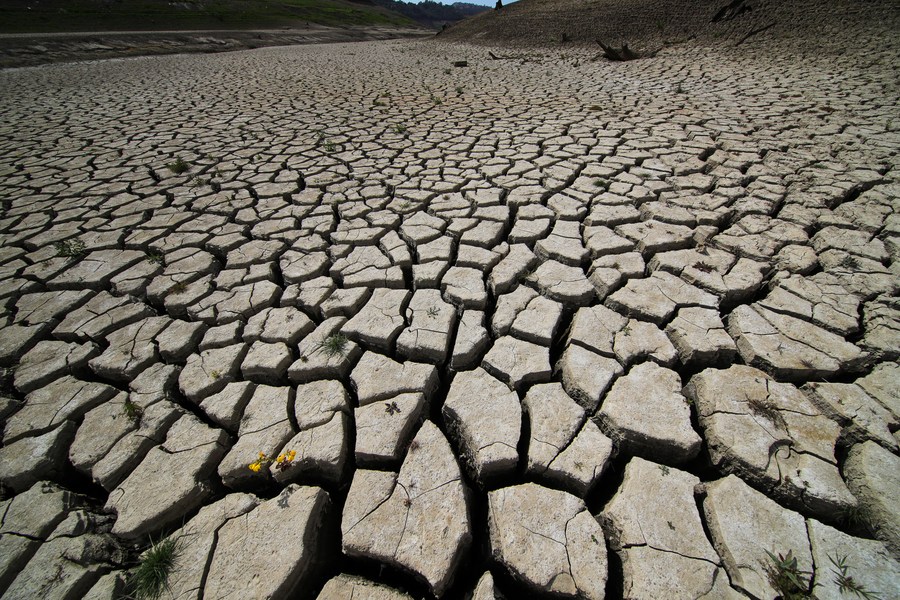All lip service, no actions -- Developed countries urged to walk the talk on climate crisis
-- "We've been coming to the COP meetings ever so often. What we have seen is the leaders are making such good speeches ... but we cannot see commitment," Charles Nyambura, from Pan African Climate Justice Alliance (PACJA), told Xinhua.
-- According to PACJA, one of the biggest civil societies in Africa campaigning for climate actions, many parts of Africa are experiencing higher-than-normal rainfall and ensuing flooding. In some countries like Madagascar, a prolonged drought and poor harvest, complicated by the COVID-19 pandemic, have triggered a humanitarian crisis.
-- Meanwhile, developing countries, which often lack the resources and resilience to tackle the challenge, are suffering the most from the impacts of climate change.
-- Political mutual trust between the wealthier and low income countries is essential for global cooperation on climate change, former U.S. Vice President Al Gore told Xinhua on Tuesday.
GLASGOW, Britain, Nov. 4 (Xinhua) -- Outside the venue of the 26th session of the Conference of the Parties (COP26) to the United Nations Framework Convention on Climate Change in Glasgow, Scotland, a group of African protesters could barely conceal their anger.

Photo taken on Oct. 31, 2021 shows a general view of the opening ceremony for COP26 in Glasgow, Scotland, the United Kingdom. (Xinhua/Han Yan)
"We've been coming to the COP meetings ever so often. What we have seen is the leaders are making such good speeches ... but we cannot see commitment," Charles Nyambura, from Pan African Climate Justice Alliance (PACJA), told Xinhua. Not far away from where Nyambura stood, the banners of COP26 were flapping wildly in the cutting gusty wind of Scotland.
Nyambura, an observer of the conference, said rich countries who built their wealth by burning fossil fuels and accounted most for the climate crisis, have failed to deliver their promise of 100 billion U.S. dollars a year to help lower-income nations by 2020, among other pledges.
"It is not about giving us money. It is about paying climate debt. We want to see our people supported to build their resilience to tackle climate change," Nyambura said.
LIP SERVICE
Nyambura is not alone in voicing his anger about the rhetoric by rich countries who failed to translate words into actions. Recent reports indicate that this goal of paying 100 billion dollars could slip to 2023.
Meanwhile, developing countries, which often lack the resources and resilience to tackle the challenge, are suffering the most from the impacts of climate change.
According to PACJA, one of the biggest civil societies in Africa campaigning for climate actions, many parts of Africa are experiencing higher-than-normal rainfall and ensuing flooding. In some countries like Madagascar, a prolonged drought and poor harvest, complicated by the COVID-19 pandemic, have triggered a humanitarian crisis.

Photo taken on April 20, 2021 shows cracked soil in drought-hit Morgan Hill, California, the United States. (Photo by Dong Xudong/Xinhua)
"This COP must be a moment of solidarity. The 100 billion U.S. dollars a year climate finance commitment in support of developing countries must become a 100 billion dollars climate finance reality," UN Secretary-General Antonio Guterres said in his speech at the World Leaders Summit at COP26.
"This is critical to restoring trust and credibility," Guterres said.
It is "pretty disheartening" that the developed countries have failed to deliver their promises under the Paris Agreement, which has damaged trust required for "a real partnership," Federica Bietta, managing director of the Coalition for Rainforest Nations, told Xinhua.
"The developing countries are coming forward with their own commitments, and with their own reductions. And so we need also the developed world to stick to their words," Bietta said.
"SHIFTING BLAME"
A narrative among some Western media and politicians is that China is mainly responsible for the climate crisis as a major emitter of greenhouse gases. Observers are quick to point out that this is an approach by some Western countries, especially the United States, to shift blame.
"Western media and politicians are trying to shift responsibility for the future of the planet onto China ... This is nonsense," Carlos Martinez, a British author and political commentator, tweeted.
"China's per capita emissions are less than half those of the U.S.," said Martinez. "Unlike the West, China's emissions aren't driven by luxury lifestyles but by industry. Meaning the advanced countries have simply exported their emissions."
Meanwhile, "China is making a concerted effort to reduce its reliance on coal," he said.
China has become the world's largest market for renewable energy, with renewable power accounting for 29.5 percent of overall electricity consumption, according to official statistics.
The country is also the world's biggest manufacturer of renewable energy equipment, ranking first in installed capacity of hydroelectric, wind and solar power generation, and has the largest nuclear power generating projects under construction.

Aerial photo taken on July 28, 2021 shows a view of the China-built Turgusun hydropower station on the Turgusun River near the city of Altai, Kazakhstan. (Photo by Kalizhan Ospanov/Xinhua)
Xie Zhenhua, China's special envoy for climate change, said the U.S. withdrawal from the Paris Agreement under former President Donald Trump's administration has caused a complete waste of nearly five years the world could have devoted to a multilateral process to tackle climate change.
Due to the disruption caused by the United States, countries across the globe now "must work harder together to catch up," Xie told reporters on Tuesday on the sidelines of COP26.
CHINA IN ACTION
As the world's largest developing country that has yet to finalize industrialization, China has announced that it would strive to peak carbon dioxide emissions before 2030 and achieve carbon neutrality before 2060.
Parties need to honor their commitments, set realistic targets and visions, and do their best according to national conditions to deliver their climate action measures, Chinese President Xi Jinping said in a written statement to the COP26.
Xi said China will roll out specific implementation plans for key areas such as energy, industry, construction and transport, and for key sectors such as coal, electricity, iron and steel, and cement, as well as supporting measures in terms of science and technology, carbon sink, fiscal and taxation, and financial incentives.
"These measures will form a '1+N' policy framework for delivering carbon peak and carbon neutrality, with clearly-defined timetable, roadmap and blueprint," Xi said.
The country recently released an action plan for carbon dioxide peaking before 2030, as well as a document titled "Working Guidance For Carbon Dioxide Peaking And Carbon Neutrality In Full And Faithful Implementation Of The New Development Philosophy."

Aerial photo taken on Aug. 19, 2020 shows wind turbines at the Jiucaiping scenic area in southwest China's Guizhou Province. (Xinhua/Liu Xu)
"China's target of achieving peak emissions by 2030 and becoming carbon neutral by 2060 will be, by far, the fastest journey from carbon peak to carbon neutral in history," said Martinez, the British commentator.
"The focus needs to be on the developed countries meeting their responsibilities as the biggest contributors to cumulative emissions," he added.
MULTILATERALISM MATTERS
"When it comes to global challenges such as climate change, multilateralism is the right prescription," Xi said in his statement.
The UN Framework Convention on Climate Change and its Paris Agreement provide the fundamental legal basis for international cooperation on climate. Parties need to build on existing consensus, increase mutual trust, step up cooperation and work together to deliver a successful COP26 in Glasgow, he added.
"The essential thing we need to do is to uphold multilateralism. We need to start working together, stop playing blame games. Let's share resources in terms of research, in terms of development. Let's coordinate around how we can support developing countries, especially the least developed countries that don't have the financial and the infrastructure resources to reduce carbon emissions," Martinez told Xinhua.
Antony Froggatt, deputy director of Environment and Society Programme Chatham House, a London-based think tank, also urged the world, especially the European Union, China and the United States, to work together for real progress in tackling climate change.
The cooperation of the three parties is "essential" to cut costs of renewable energy like solar energy and wind power, which enables other countries to access these technologies, he said.
Political mutual trust between the wealthier and low income countries is essential for global cooperation on climate change, former U.S. Vice President Al Gore told Xinhua on Tuesday.

Photo taken on May 27, 2021 shows the Kaposvar solar power plant in Kaposvar, Hungary. (Photo by Attila Volgyi/Xinhua)
Countries that benefited from early industrialization processes have a responsibility to do more in solving the problems coming along with the heavy reliance on fossil fuels, said the prominent environmentalist, urging developed countries to deliver their promises and provide more assistance to low income countries as soon as possible.
However, the world may not afford to wait for too long. Just as protester Nyambura said, "We don't need more rhetoric. We just need you to act."
Photos
Related Stories
- A divided America casts a shadow on global response to climate change
- China urges developed countries to intensify efforts on climate change
- U.S. withdrawal from Paris Agreement wastes world 5 years to tackle climate change: Chinese envoy
- How developed nations shift blame on climate change
- Country to 'honor its word' on climate
Copyright © 2021 People's Daily Online. All Rights Reserved.










